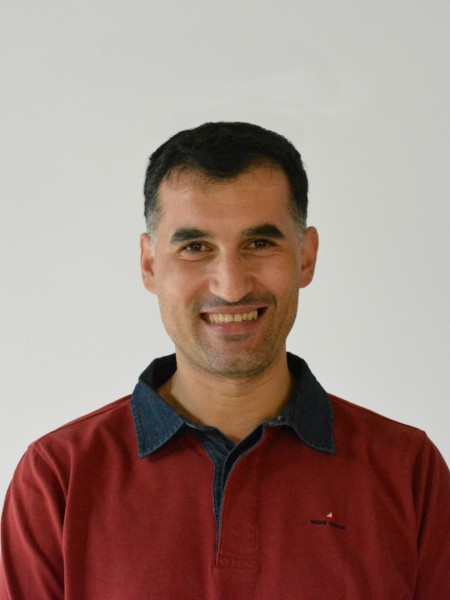resumo
A mixed lanthanide beta-diketonate complex of molecular formula [Eu0.45Tb0.55(btfa)(3) (4,4'-bpy)(EtOH)] (btfa(-) = 4,4,4-trifluoro-1-phenyl-1,3-butanedionate; 4,4'-bpy = 4,4'-dipyridyl; EtOH = ethanol) was synthesized and its structure was elucidated by single crystal X-ray diffraction. The temperature dependence of the complex emission intensity between 11 and 298 K is illustrated by the Commission Internacionale l'Eclairage (CIE) (x,y) color coordinates change within the orange-red region, from (0.521, 0.443) to (0.658, 0.335). The existence of Tb3+-to-Eu3+ energy transfer was observed at room temperature and as the complex presents a relatively high emission quantum yield (0.34 +/- 0.03) it was doped in a 4,4'-bis(carbazol-9-yl) biphenyl (CBP) organic matrix to be used as emitting layer to fabricate a white organic light-emitting diode (WOLED). Continuous electroluminescence emission was obtained varying the applied bias voltage showing a wide emission band from 400 to 700 nm. The white emission results from a combined action between the Eu3+ and Tb3+ peaks from the mixed Eu3+/Tb3+ complex and the other organic layers forming the device. The intensity ratio of the peaks is determined by the layer thickness and by the bias voltage applied to the OLED, allowing us to obtain a color tunable light source. (C) 2014 Elsevier B. V. All rights reserved.
palavras-chave
LIGHT-EMITTING-DIODES; CAMBRIDGE STRUCTURAL DATABASE; ENERGY-TRANSFER; CRYSTAL-STRUCTURES; COLOR; UV; EUROPIUM(III); EFFICIENT; EMISSION; 1,10-PHENANTHROLINE
categoria
Materials Science; Physics
autores
Lima, PP; Paz, FAA; Brites, CDS; Quirino, WG; Legnani, C; Silva, MCE; Ferreira, RAS; Junior, SA; Malta, OL; Cremona, M; Carlos, LD
nossos autores
agradecimentos
We are grateful to the Fundacao para a Ciencia e a Tecnologia (FCT), Fundo Europeu de Desenvolvimento Regional (FEDER) and Mais Centro - PORC, under contracts Pest-C/CTM/LA0011/2013 and CENTRO-07-ST24-FEDER-002032. The funding by Brazilian agencies CAPES, CNPq, FAPEMIG and inct-INAMI is also acknowledged. PPL (SFRH/BPD/34365/2006) and CDSB (SFRH/BPD/89003/2012) thank FCT for grants.






